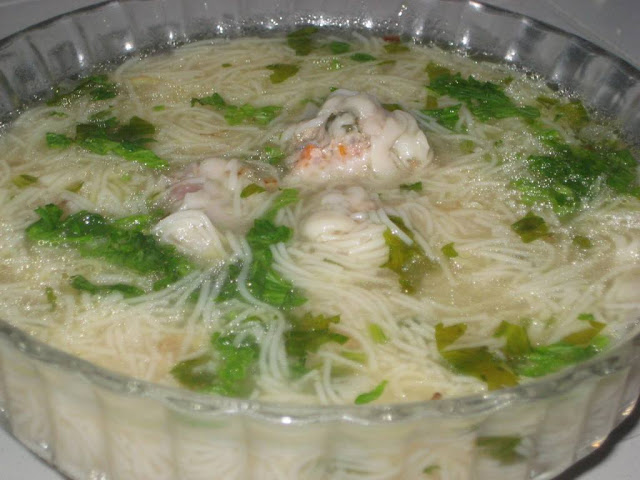Nowadays, weight-loss is one of the trending (my assumption only) New Year"s resolution. But before wearing those gear for excersise, work-outs, running as well as planning to weight-loss diet, we need to know some ways that makes a peson gain weight.
A I read my emails, one that caught my attention is the Newsletter from Men's Health "Eat This and Not That" entitled "7 Habits That Make You Fat". This article discuss about breaking seven (7) simple habits making us (yes, I include myself) fat. These habits are not associated with execrcise and diets but simple activities that will greatly improve body's health.
Fat Habit # 1 - Putting the serving Dishes at the Table
Scientists had this theory that getting our food from the kithchen counter or stove ate 35% less food compared to those getting food on the dinning table. This is because we think that we're really need more food or not.
Fat Habit # 2 - Getting Too Little (or Too Much) Sleep
Researchers said that people who slept ≤ 5 hours and longer than 8 hours per night tends to gain abotu 2.5 times abdonimal/belly fat compared to those spent 6 to 7 hours of sleep. Furthermore, persons who lack sleeps tend to eat more but consumed less energy because they are tired while those who sleep longer that 8 hours tends to be quite inactive.
Fat Habit # 3 - Not Multitasking While Watching TV
NOTE: Watching too much is not associated to weight gain.
We must know that doing some task while watching TV can consume energy rather than sitting infront of your TV and watch your favorite shows. Say for example, Washing dishes or ironing clothes while watching TV can burn up to 70 calories for every 30 minutes. Also, cutting TV time can reduce calories. Study showed that reducing veiwing time into half, let say from 5 hours reduced to 2.5 hours, burned extra 119 calories daily. Perhaps this will lead us to other activities that will burn more calories. According to Jennifer J. Otten, Ph.D. that any activity we do, even reading, can burn more calories that watching TV.
Fat Habit # 4 - Drinking Soda
Soda intakes can increase risk of obesity as researchers claimed. See the risk of becoming obese by the daily amount of soda intakes
½ can = 26 percent increased risk of being overweight or obese
½ to 1 can = 30.4 percent increased risk
1 to 2 cans = 32.8 percent increased risk
More than 2 cans = 47.2 percent increased risk
Take this note from Center for Science in the Public Interest's report: "Carbonated soft drinks are the single biggest source of calories in the American Diet."
(Trivia: Did you know that in 1950s, the average person consumes about 11 gallons of soda a year but by the mid-2000s an average person is already consuming 46 gallons every single year?)
Fat Habit # 5 - Taking Big Bites
Taking big bites and chewing fast will result to overeating thus gaining extra weight. In a Dutch study, a person who chewed big bites for 3 seconds takes 52% more food before feeling full compared for those who chewed small bites for 9 seconds. Reason: Tasting food longer signals your brain to make you full sooner.
Fat Habit # 6 - Not Eating Enough Fat
Just switching hundred calories of carbohydrates with little fat may help reduce weight as well as insulin levels in the blood. Researchers showed in their study that people taking 43% calories from carbohydrates felt full for the next 4 hours with thier blood-sugar levels remained the same than those who take 55% of carbohydrates. Carbohydrates contributes sudden change (from high level to low level) of blood sugar which leads a person to hunger and overeating. Example of carb to fat switch: use butter instead of jams on toasts, bacon in replace of potatoes, low-fat milk rather than sports drink.
Fat Habit # 7 - Not getting the Best Guidance
Signing up for articles that contain weight-loss guides can help reduce weight. Receiving such newsletters helps motivates physical activities and eat smarter, based on reasearch conducted from Canada to 1,000 working adults.
The above were just guides, it is still up to us if we will follow religiously. Self-discipline is also important.







